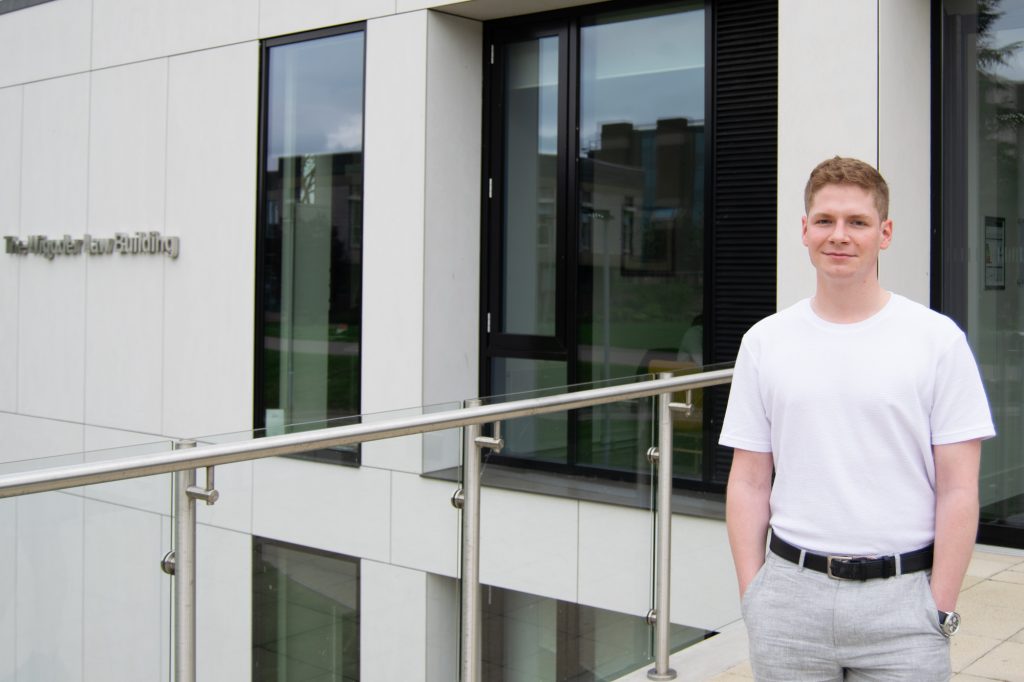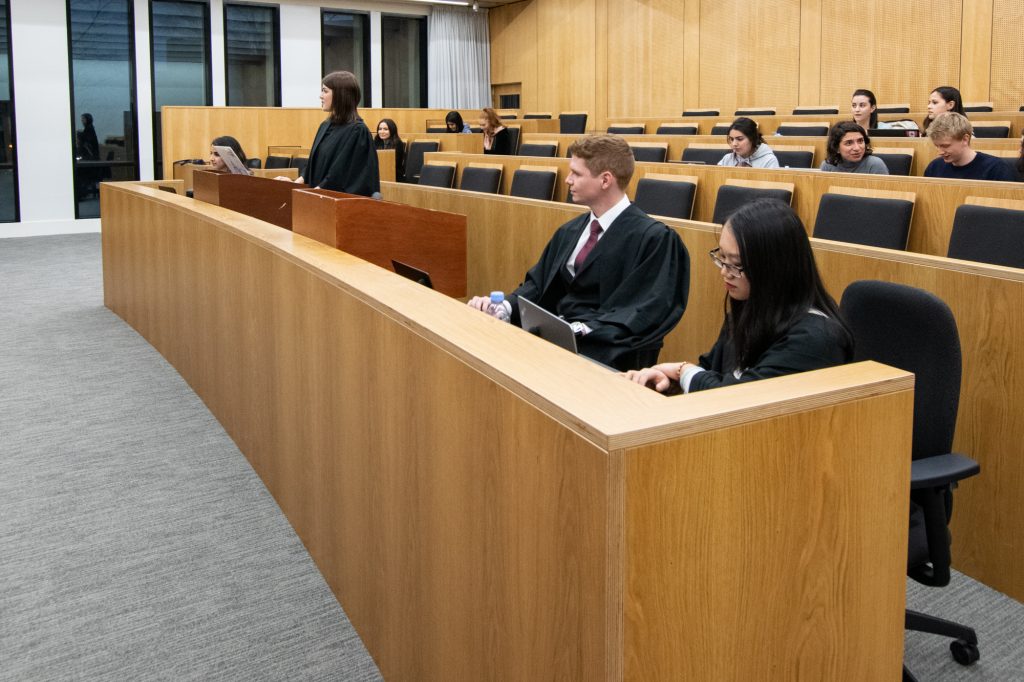
Law student, and aspiring barrister, Mark Nagy-Miticzky says his mooting experiences at Kent were “critical” in helping him secure more than £20k in scholarships from Inner Temple and BPP.
Mark has been awarded a prestigious £16,600 Inner Temple Exhibition Award together with a £1,500 Yarborough-Anderson Scholarship (an Inner Temple Benefactors Scholarship) and a Duke of Edinburgh Entrance Award of £175 (to cover the Inn’s fees for admission and call). The Inner Temple awards scholarships each year based on merit with applicants being assessed on their intellectual qualities, motivation, character and ‘impact’. Competition is tough and less than a third of those that are interviewed for a scholarship are likely to receive an award.
Mark has also been awarded a BPP University BPTC (Bar Professional Training Course) Excellence Scholarship of £2,000.
The scholarships will help support Mark as he progresses to the BPTC, the next stage in his professional training to become a barrister. Mark chose the barrister route after completing a number of mini-pupillages and vacation schemes and after the experience of advocating on his feet through participation in the Law School’s mooting programme.
At his Inner Temple interview in London, Mark was interviewed by a panel of three barristers, including a QC and judge. Mark said: ‘I think my mooting experiences were critical in my interview. Really the three things scholarship providers and chambers look for the most (I think) are good grades, and involvement in mini-pupillages and mooting.’
During his four-year International Legal Studies degree, Mark took part in a Landmark Property Moot and reached the quarter-final of an Inner Temple Moot. He was also awarded ‘Best Mooter’ for his performance in a Kent Law School Evidence Moot. Mark said: ‘Having these competitions on my CV makes it easy to check the box for mooting experiences, but the public speaking skills also meant I was somewhat more comfortable selling myself in my answers. A lot of the questions in my interview were directed at my individual application; asking about my year abroad, mooting, mini-pupillages and the rest. I was expecting this, but it seemed near enough impossible to predict what they’ll pick up on from my application, so my approach was just to be as genuine as possible.’

Mark was also questioned on a criminal case he had been given 30 minutes to read before his interview: ‘There were some general questions and one very specific question to test my attention to detail. The case was fairly easy to understand and I just so happened to remember the specific detail they were interested in, so this part of the interview went well.’
In a final one-minute exercise, Mark was asked to argue a random topic chosen by the panel. They chose education: ‘I had to argue for and against the current GCSE and A level framework. This was a fairly topical issue for someone going through education and I got a cheeky peek at the timer throughout to pace myself.’
As Mark prepares to sit his final Law School exams, he says his experience at Kent has exceeded his expectations: ‘The critical approach in particular is very unique, and I feel it helps develop your ability to form opinions and argue effectively in support of them. I also found that despite the size of the Law School there is a great deal of individual support available, which helps you hone in on your weaknesses and ensures you come out with added value. Lastly, the student body feels like a community, where we support rather than fear one another as competition, which makes the law school experience that bit more enjoyable and keeps you motivated throughout your studies.’
During his time at Kent, Mark took advantage of the support offered by the Law School’s Employability and Career Development Officer Jayne Instone: ‘Jayne is great. She has been very supportive throughout my journey so far, helping with applications forms and career advice whenever I needed. A lot of my mini-pupillages and vac schemes came through opportunities arranged by her for Kent law students. Throughout these experiences I gained an appreciation for the practicalities of the job, while enabling me to demonstrate a drive for the role. I think both are essential to do well throughout this process, and I would encourage every law student to take advantage of such opportunities.’
Mark doesn’t know which area of the law he wants to specialise in yet, a fact he says he admitted to at his scholarship interview: ‘I thought being honest was the best approach, and I think the fact I am taking active steps to resolve this question, coupled with my understanding of the areas I’ve explored so far, meant they didn’t interpret this as a negative.’
Mark said he would encourage law students to decide what they want to do as early as possible: ‘Any role in law is going to be competitive, and focusing on getting the best grades alone just doesn’t seem to cut it. Employers look for relevant legal work experience to demonstrate a genuine understanding and interest, and other work and extracurriculars that bring transferable skills. The sooner you decide what you want to be doing, the sooner you can start arranging opportunities that demonstrate these attributes and set yourself apart from the competition.’




